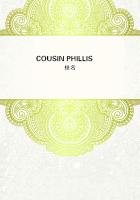Such was the substance of the conversation I had with this very singular person;but I was greatly surprised to see him come the Sunday following and take me with him to the Quakers'meeting.
There are several of these in London,but that which he carried me to stands near the famous pillar called The Monument.The brethren were already assembled at my entering it with my guide.There might be about four hundred men and three hundred women in the meeting.
The women hid their faces behind their fans,and the men were covered with their broad-brimmed hats.All were seated,and the silence was universal.I passed through them,but did not perceive so much as one lift up his eyes to look at me.This silence lasted a quarter of an hour,when at last one of them rose up,took off his hat,and,after ****** a variety of wry faces and groaning in a most lamentable manner,he,partly from his nose and partly from his mouth,threw out a strange,confused jumble of words (borrowed,as he imagined,from the Gospel)which neither himself nor any of his hearers understood.When this distorter had ended his beautiful soliloquy,and that the stupid,but greatly edified,congregation were separated,I asked my friend how it was possible for the judicious part of their assembly to suffer such a babbling?"We are obliged,"says he,"to suffer it,because no one knows when a man rises up to hold forth whether he will be moved by the Spirit or by folly.In this doubt and uncertainty we listen patiently to everyone;we even allow our women to hold forth.Two or three of these are often inspired at one and the same time,and it is then that a most charming noise is heard in the Lord's house.""You have,then,no priests?"say I to him."No,no,friend,"replies the Quaker,"to our great happiness."Then opening one of the Friends'books,as he called it,he read the following words in an emphatic tone:-"'God forbid we should presume to ordain anyone to receive the Holy Spirit on the Lord's Day to the prejudice of the rest of the brethren.'Thanks to the Almighty,we are the only people upon earth that have no priests.Wouldst thou deprive us of so happy a distinction?Why should we abandon our babe to mercenary nurses,when we ourselves have milk enough for it?These mercenary creatures would soon domineer in our houses and destroy both the mother and the babe.God has said,'Freely you have received,freely give.'Shall we,after these words,cheapen,as it were,the Gospel,sell the Holy Ghost,and make of an assembly of Christians a mere shop of traders?We don't pay a set of men clothed in black to assist our poor,to bury our dead,or to preach to the brethren.
These offices are all of too tender a nature for us ever to entrust them to others.""But how is it possible for you,"said I,with some warmth,"to know whether your discourse is really inspired by the Almighty?""Whosoever,"says he,"shall implore Christ to enlighten him,and shall publish the Gospel truths he may feel inwardly,such an one may be assured that he is inspired by the Lord."He then poured forth a numberless multitude of Scripture texts which proved,as he imagined,that there is no such thing as Christianity without an immediate revelation,and added these remarkable words:"When thou movest one of thy limbs,is it moved by thy own power?Certainly not;for this limb is often sensible to involuntary motions.Consequently he who created thy body gives motion to this earthly tabernacle.And are the several ideas of which thy soul receives the impression formed by thyself?Much less are they,since these pour in upon thy mind whether thou wilt or no;consequently thou receivest thy ideas from Him who created thy soul.
But as He leaves thy affections at full liberty,He gives thy mind such ideas as thy affections may deserve;if thou livest in God,thou actest,thou thinkest in God.After this thou needest only but open thine eyes to that light which enlightens all mankind,and it is then thou wilt perceive the truth,and make others perceive it.""Why,this,"said I,"is Malebranche's doctrine to a tittle.""I am acquainted with thy Malebranche,"said he;"he had something of the Friend in him,but was not enough so."These are the most considerable particulars I learnt concerning the doctrine of the Quakers.In my next letter I shall acquaint you with their history,which you will find more singular than their opinions.















